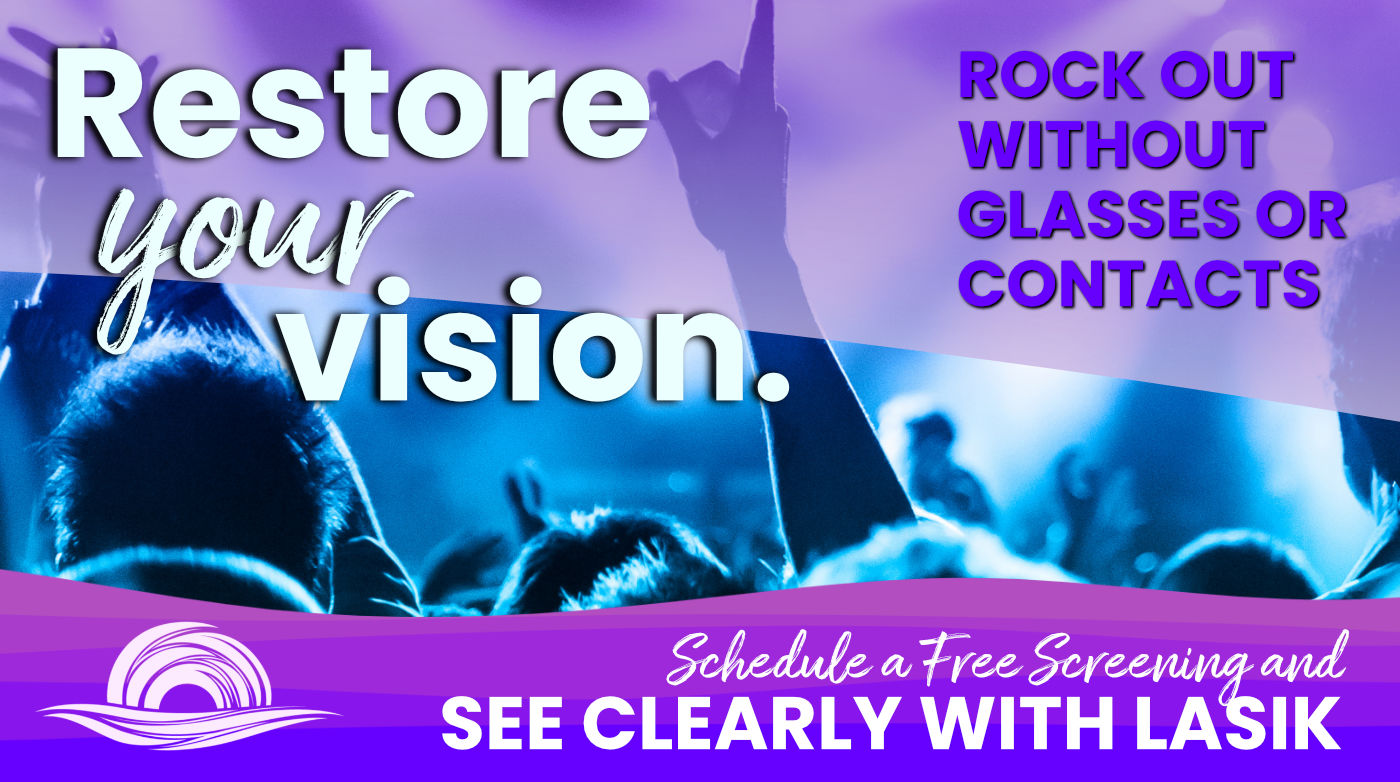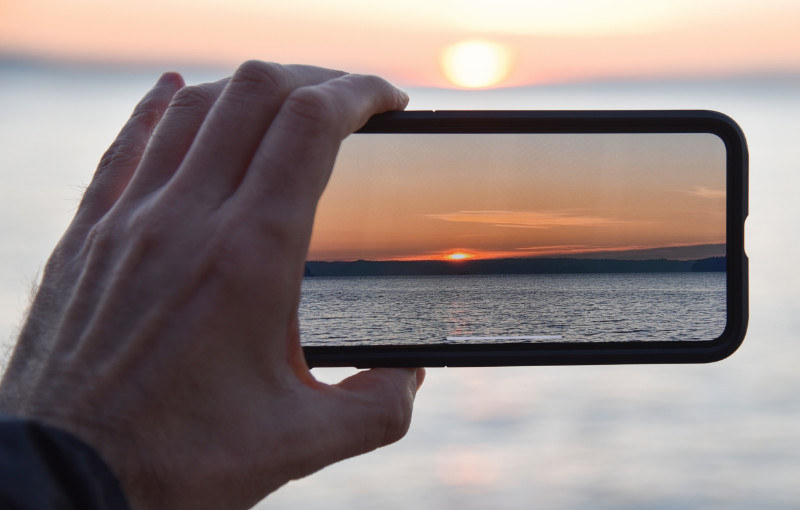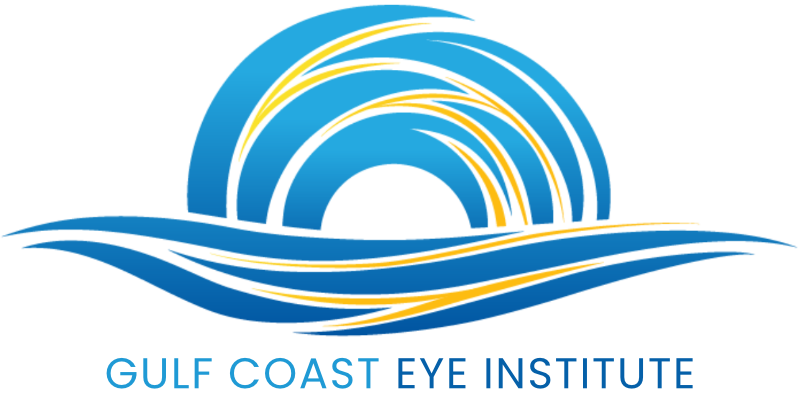Free LASIK Screening (McAllen / Harlingen) Take a quick online assessment →
Our Experience with LASIK
What is LASIK
LASIK is an acronym for Laser-Assisted In Situ Keratomileusis. This procedure corrects your vision by reshaping the cornea of your eye using advanced laser technology. LASIK is one of the safest and most thoroughly studied procedures in the United States. The talented eye care professionals here at Gulf Coast Eye Institute are well versed in the LASIK procedure, which can help you reduce your dependency on corrective lenses and contacts. In many cases LASIK can result in 20/20 vision post surgery.
We will not perform the surgery unless we are certain that a patient is a prime candidate for LASIK. For more than 20 years, our team of board-certified ophthalmologists have performed countless numbers of LASIK eye surgeries. This technology, plus a team of experienced surgeons, provides our patients an unprecedented level of trust and care. Our doctors specialize in the cornea but will focus on both the outside and the inside to be sure the patient is a good candidate for LASIK before we move forward with the procedure.
What does LASIK eye surgery treat?
LASIK is a laser vision correction procedure that treats the three most common vision issues:
- Nearsightedness (can’t see far away)
- Farsightedness (can’t see up close)
- Astigmatism (blurring at both distances)
If you’re wearing glasses and/or contacts, and you fall into one (or a combination) of these categories, then LASIK may be the right choice for you.
If you qualify for LASIK, our laser LASIK eye surgery can help you get the clear vision that you deserve.
How does LASIK eye surgery work?
LASIK eye surgery involves reshaping a patient’s cornea to allow for light to be focused correctly on the retina. For example, if you are nearsighted, your corneal surface is too steep and vision will be correctly focused by reshaping the surface of the eye to have light correctly focused on the retina. The same principle applies to other common refractive errors as LASIK can be a great solution for astigmatism and farsightedness. Measurements of how much tissue is to be removed are taken by our eye surgeons, and our laser technology will be used to remove that precise amount of tissue from the cornea to provide patients with improved vision.
In the first step of the LASIK procedure, the surgeon will use a femtosecond laser to create the corneal flap followed by the use of the excimer laser, which removes tissue in key areas to correct the refractive error. This entire procedure can be completed in a matter of seconds.
Find out if you are eligible for LASIK
Patients will only be approved for LASIK eye surgery if we are certain they are in the condition to have a successful operation. If you are not qualified to have LASIK, there are other options available for correcting your vision. We offer PRK surgery for patients with an irregularly shaped cornea and Clear Lens Exchange for those suffering from over 40 vision and who do not qualify for LASIK. At Gulf Coast Eye Institute, we have offer a variety of vision correction services to ensure that all our patients are treated with the best vision care.
Who doesn’t qualify for LASIK?
There are a few types of ocular conditions that may disqualify a patient from receiving LASIK eye surgery. Here are some of the most common conditions that may disqualify a patient from receiving LASIK treatment:
- Keratoconus
- Retina issues
- Glaucoma issues
If you are suffering from any of these conditions LASIK is not the best course for you to take. Although LASIK is not the answer for these problems, Gulf Coast Eye Institute does have services designed to treat each of the above conditions.
LASIK Eye Surgery Consultation
Here at Gulf Coast Eye Institute we offer patients a FREE LASIK screening. In order to confirm that a patient is indeed a good candidate for LASIK eye surgery we must complete a full consultation that includes a dilated eye exam. There is a fee for the dilated portion of the consultation but a fee may be applied toward the total cost of your LASIK procedure. We will discuss this with you during your LASIK consultation.
Why LASIK at Gulf Coast?
At Gulf Coast Eye Institute, our experienced surgeons have helped many patients enjoy dramatically improved vision. Many of these patients have had vision correction with our popular All-Laser LASIK.
For many people living in the Rio Grande Valley of Texas, All-Laser LASIK is an extremely popular vision correction choice due to the quick recovery and because our surgeons are able to treat nearsightedness (myopia), farsightedness (hyperopia) and astigmatism.
ALL-LASER LASIK – LASER VISION CORRECTION – IS THE MOST POPULAR ELECTIVE PROCEDURE PERFORMED IN THE WORLD. LITERALLY MILLIONS OF PEOPLE AROUND THE WORLD UNDERGO THIS MIRACULOUS EYE TREATMENT PROCEDURE TO IMPROVE THEIR VISION EVERY YEAR.
Not all laser centers and eye surgeons are the same. Gulf Coast Eye Institute features All-Laser Custom LASIK with two of the newest technologies – the Bausch and Lomb Victus FS laser and Technolas excimer laser. This technology, plus a team of experienced surgeons, provides for you an unprecedented level of trust and care as a patient.
LASIK SurgeryAt Gulf Coast Eye Institute, our LASIK team includes board-certified ophthalmologists who are also fellowship trained. Most of our surgeons specialize in diagnosing and treating diseases of the retina. This is a tremendous advantage for the potential LASIK patient. This means, when indicated, your LASIK screening can include a retinal screening to ensure LASIK is the best and safest choice for you. Why conduct a retinal screening? The answer is to make sure you really are a good candidate for this procedure and to rule out anything that would prevent you from achieving optimal results. Our surgical team will not perform LASIK unless our patients are ideal candidates for the procedure. You can be sure that only the highest standards of care are present on your behalf at all of our facilities.
LASIK is an extraordinarily miraculous procedure. It works by changing the shape of your cornea, which changes the way images focus on your retina. It’s technically a two-step process: Creating a small flap on the cornea, and reshaping the corneal surface, all in just a few minutes.
Gulf Coast Eye Institute LASIK surgeons use a Bausch and Lomb Technolas excimer laser to reshape and correct the focal point of your cornea, resulting in clearer vision.
If you are nearsighted: Your corneal surface is too steep. Eye surgeons use the Technolas excimer laser to remove tissue from the central area of the cornea to correct the focus.
If you are farsighted: Your corneal surface is too flat. Gulf Coast Eye Institute surgeons use the excimer laser to remove tissue from the corneal surface periphery which will correct focus.
If you have astigmatism: The corneal surface is more oblong than the ideal spherical shape, like a football rather than a basketball. A Gulf Coast Eye Institute LASIK surgeon uses the excimer laser to remove the multiple focal points that are present with astigmatism, creating one focal point to correct focus. (Astigmatism can be treated during your procedure for nearsightedness or farsightedness).
What to Expect After LASIK
The visual recovery time is short after All-Laser LASIK. Many patients report notably better vision the day after their procedure. Vision usually continues to improve in the following days and weeks. Full effects of LASIK are typically achieved within 2-3 months. Patients can resume most daily activities almost immediately following their LASIK procedure. Things like swimming and contact sports should be avoided for 3-4 weeks.
LASIK Alternatives
Still looking for vision correction, but LASIK isn’t an option for you? Don’t worry, Gulf Coast Eye has plenty of option for you too! Check out some of our other vision correction options below.
PRK
Like LASIK, PRK (Photorefractive Keratectomy) is a vision correction surgery. It was the first procedure using an excimer laser approved for use in the United States. Used to correct nearsightedness, farsightedness and astigmatism, PRK vision correction surgery is a ‘flap-free’ procedure that has comparable results to LASIK. Because of the similar outcomes, PRK is a common alternative to LASIK.
How is PRK different than LASIK?
PRK was around before LASIK. In both cases, a laser is used to correct refractive issues on the corneal surface. The main difference between PRK and LASIK is how the cornea is accessed. LASIK creates a thin flap on the surface of the cornea. With PRK, the very thin outer layer of the cornea (epithelium) is gently swabbed away to allow your Gulf Coast Eye Institute surgeon access to a larger treatment area. This outer layer naturally regenerates itself after surgery.
Which procedure is right for me?
LASIK is the most widely used refractive procedure performed in the United States today. Most patients report a very high comfort level following the procedure and almost instant improvement in their vision. PRK is most commonly used for patients who have somewhat thin or irregular corneas.
At your free consultation, your Gulf Coast Eye Institute surgeon will recommend the procedure that is best for you.
Clear Lens Exchange
Over-40 Vision? Too Many Pairs of Readers and You Can Never Find Yours?Most patients who undergo All-Laser LASIK don’t require corrective lenses for their daily tasks after surgery. But, due to natural aging, some over-40 patients may require reading glasses for presbyopia (over-40 vision), a condition that can occur regardless of whether you have had LASIK.
Presbyopia patients have several options today to help eliminate the need for readers, bifocals and even progressive lenses. One great and relatively simple option is called a “monovision” correction to combat the effects of aging. Monovision allows patients to use one eye for distance vision and the other eye for near vision.
Another option that has gained tremendous popularity today is called a Clear Lens Exchange or CLE. This may be an even better option than All-Laser LASIK, PRK or other procedures for patients who are currently using readers or bifocals or are farsighted. Clear Lens Exchange replaces your eye’s clear natural lens with an artificial lens to correct your distance and near vision thus reducing your need for readers or bifocals.
We offer our patients the most advanced laser-assisted surgical technology available in today’s CLE procedures. This is a revolutionary technique to more accurately remove your natural lens and implant the new advanced Active Life Lenses.
We all are aging but how we age today can be very different for the “over 40” population thanks to recent advances in restorative lens options. Our Gulf Coast Eye Institute surgeons are happy to discuss all options for your unique vision, and we’ll work with you to choose the right procedure that best fits your needs and lifestyle.




